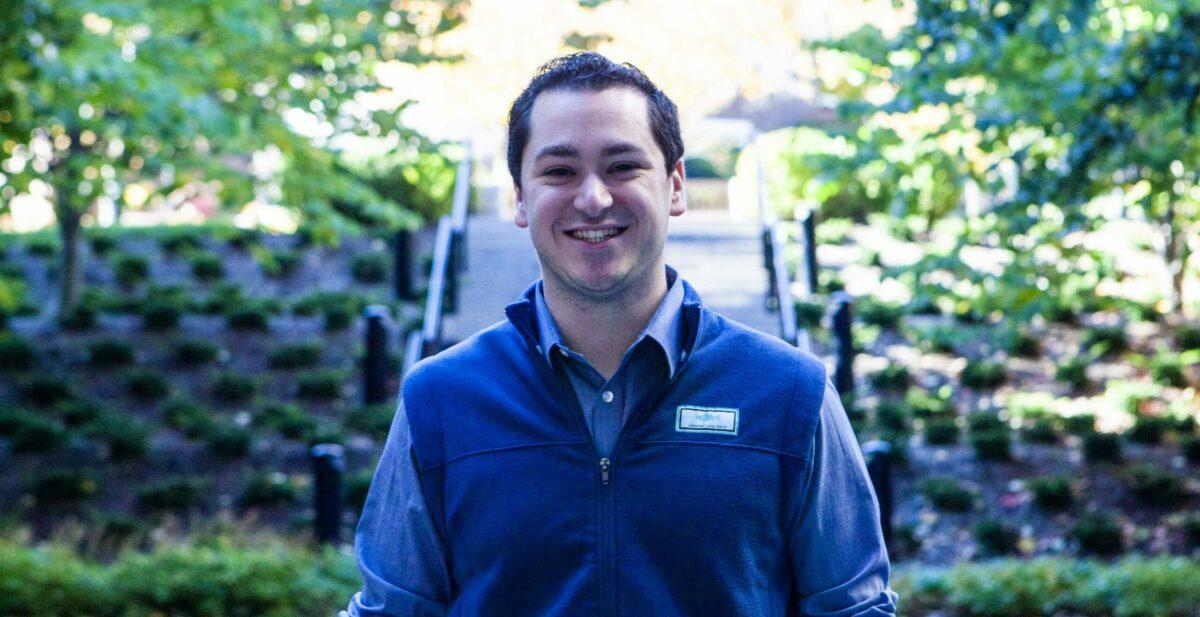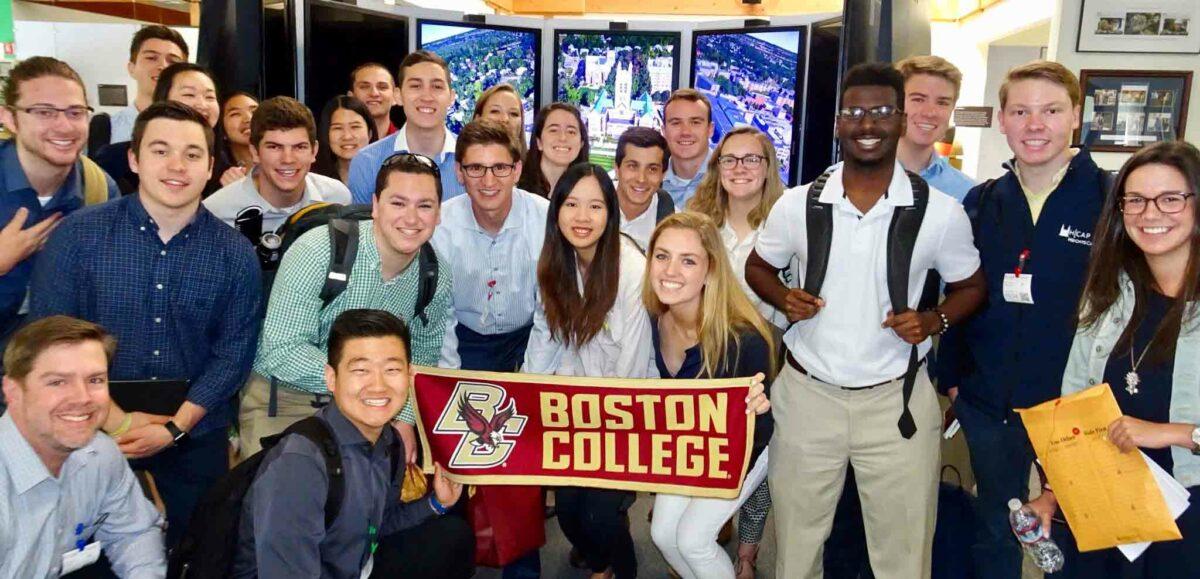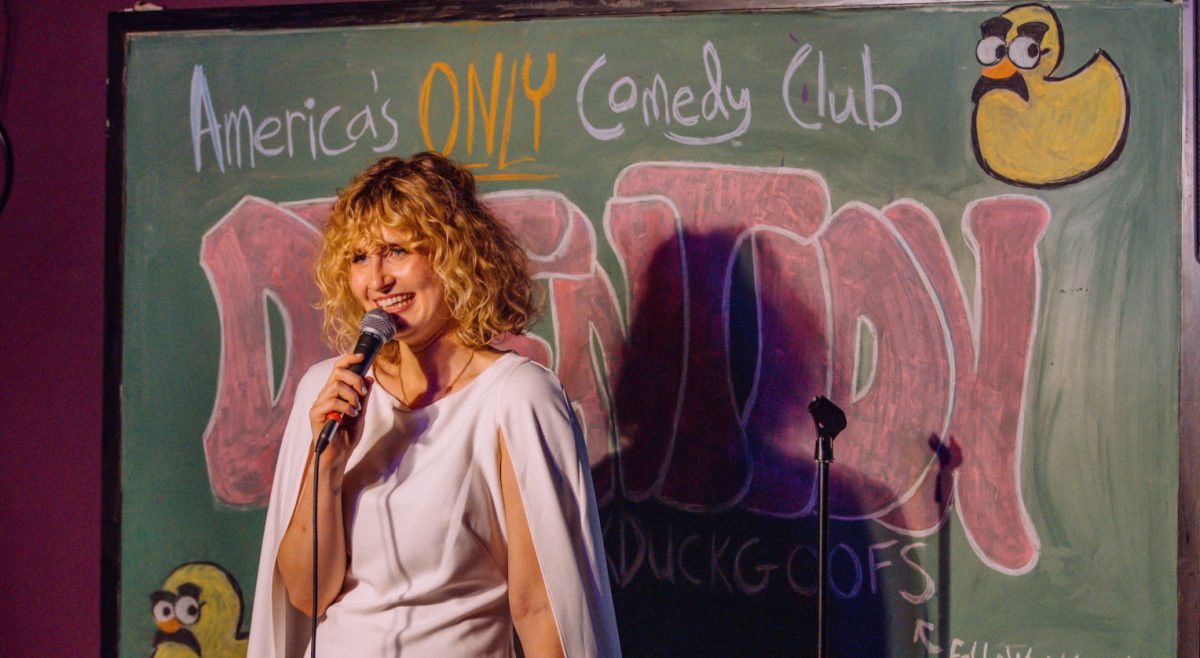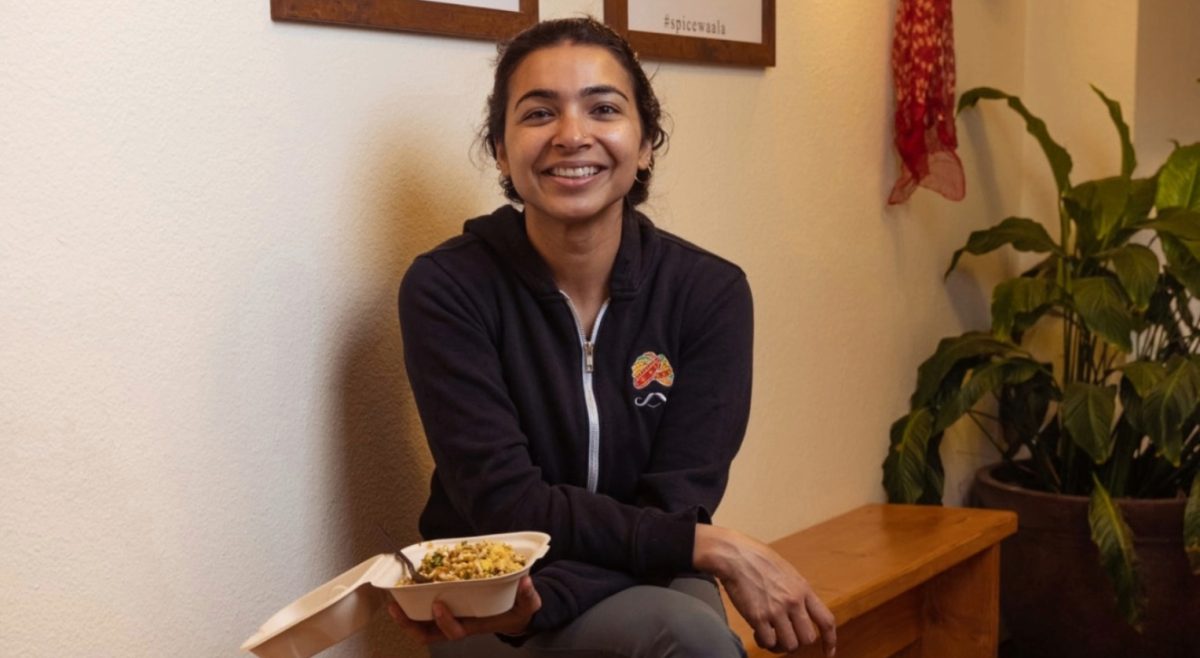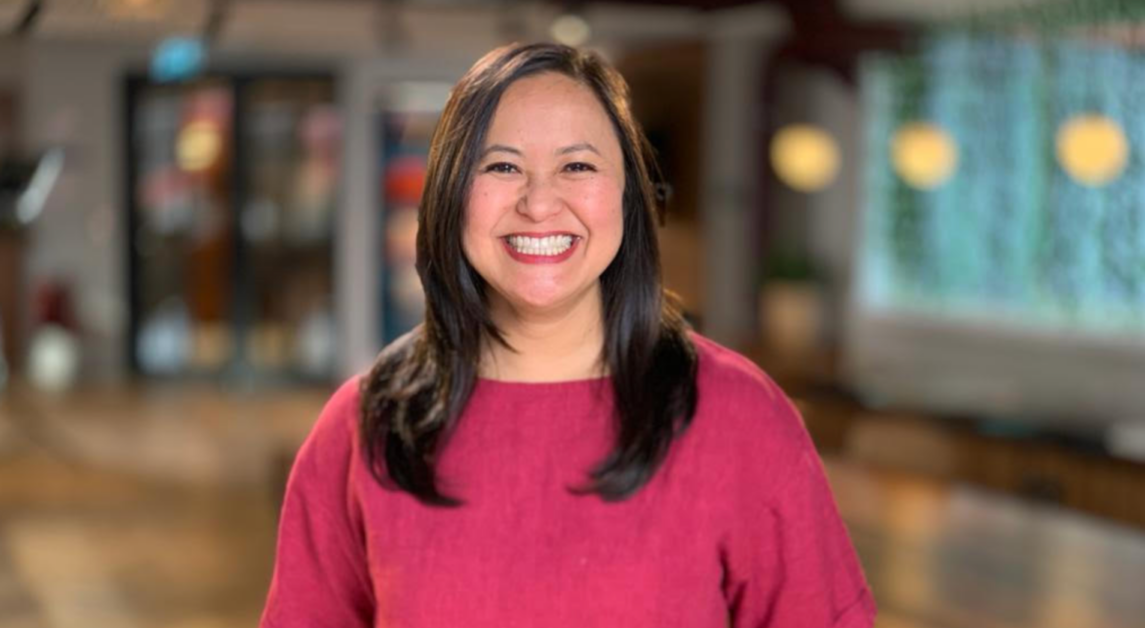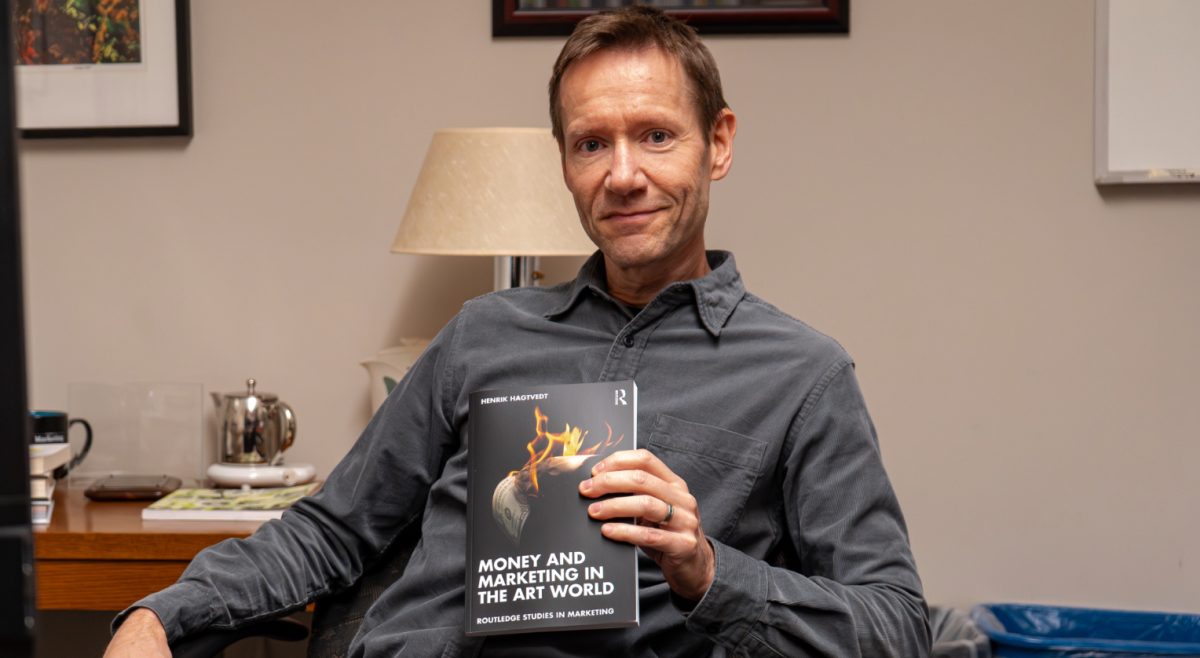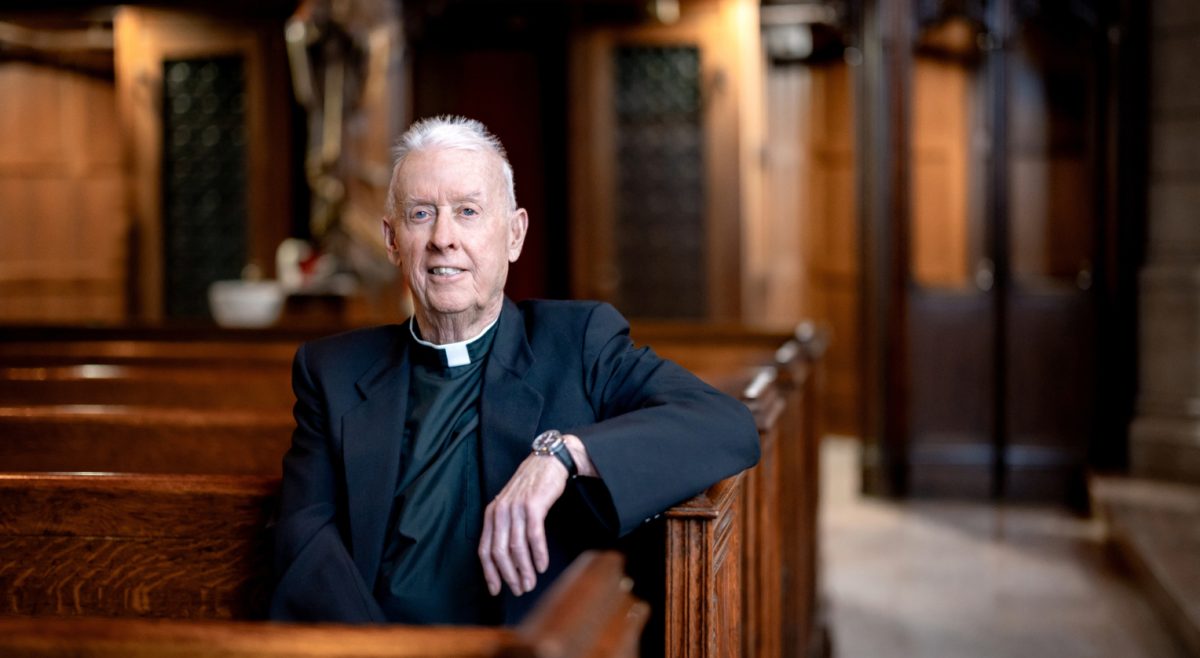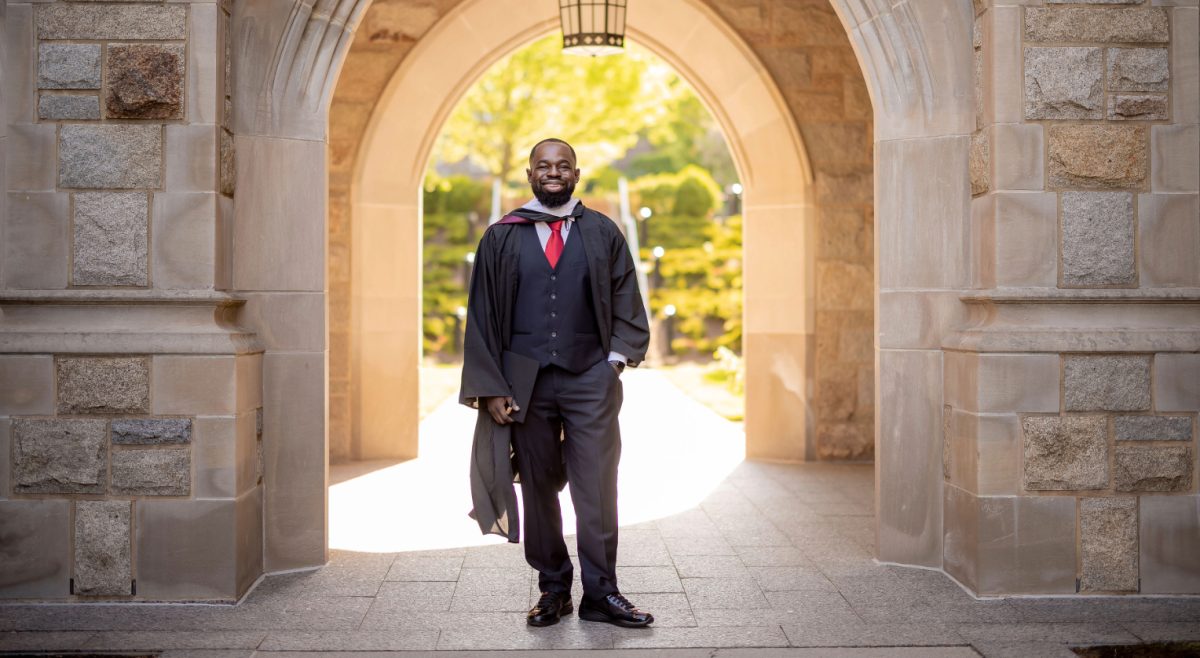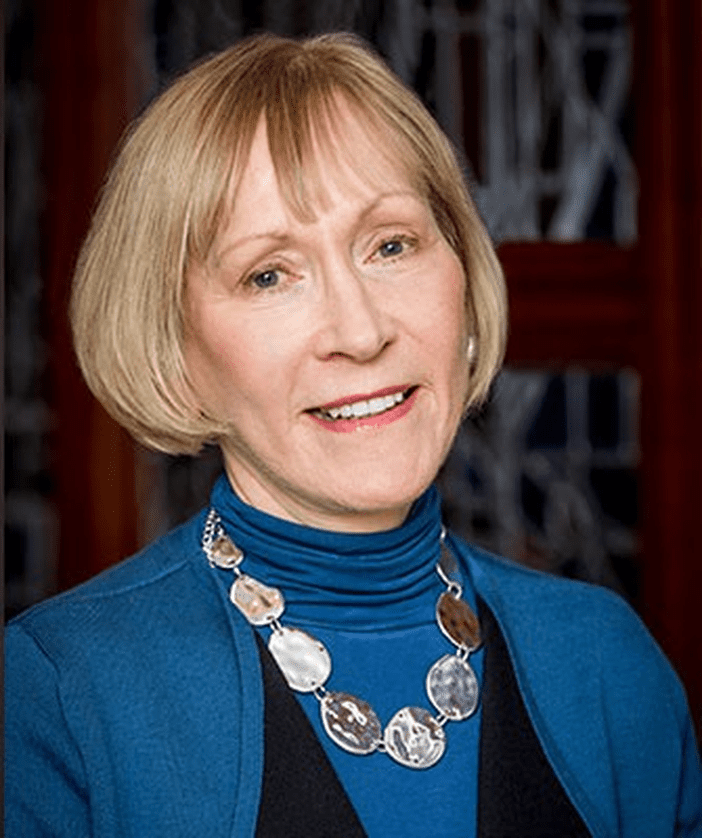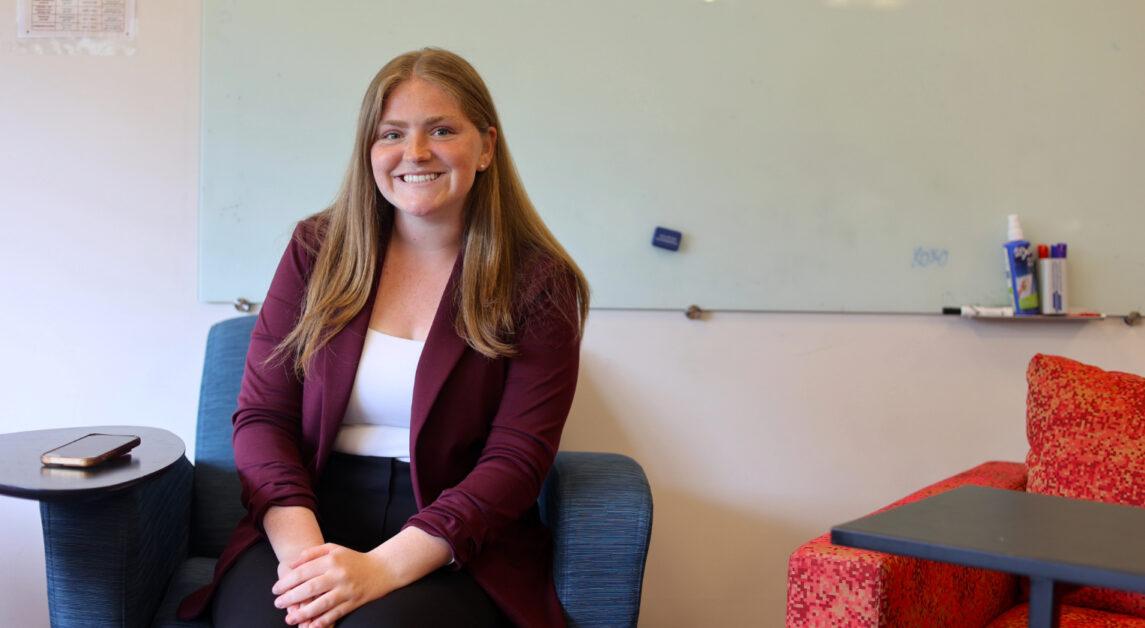Boston College students often hear the University’s core philosophy through the same mantras—such as “men and women for others” and “set the world aflame”—but it can be hard to think of real-world applications of these principles.
Matthew Giovanniello, BC ’18, recalls passing a sign in McElroy Commons that read “doing well by doing good” during his time at BC. He feels this idea encapsulates the focus of his company—Frenalytics.
Giovanniello is the CEO and co-founder of Frenalytics, which provides data-driven solutions for cognitively impaired patients, helping them relearn aspects of daily life through an interactive online learning tool. Creating a reimagined rehabilitation process for those who suffer from strokes, traumatic brain injuries, and dementia was not a recent idea for Giovanniello—he has been working toward the company’s creation since he was a seventh-grader.
The idea behind Frenalytics was born in 2008 when Giovanniello’s grandmother had a severe stroke on the operating table during an open-heart surgery, ultimately leaving her paralyzed on the right side of her body and causing irreversible brain damage.
“In essence, it affected her ability to comprehend and communicate,” Giovanniello said. “It impacted her short-term memory and impacted her ability to communicate that her long-term memory was still intact.”
Over the subsequent months, Giovanniello’s grandmother spent time in some of New York’s top hospitals. She worked with all sorts of therapists and professionals to relearn fundamental concepts—such as identifying family members, comprehending numbers, and other daily activities—that she had lost.
Giovanniello’s frustration mainly stemmed from these professionals’ use of flashcards as their means of re-teaching these concepts. He found this form of rehabilitation patronizing, and said it was clear that his grandmother’s condition did not improve.
Determined that there was a better way for his grandmother to relearn activities of daily living, Giovanniello put together a PowerPoint program to aid his grandmother’s rehabilitation, which became the blueprint for what Frenalytics is today.
“The original version of the PowerPoint that I created had things like background colors and sound effects and a scoring system to help her get a better idea as to the areas that she was doing well in and for us as family members to realize the areas that she was doing well in and things that she was still struggling with,” Giovanniello said.
One of the first questions that Giovanniello created for his grandmother was about a photo of her family members from a vacation before her stroke. An arrow on the screen would point at each of the faces, and she had to identify the family member. Not only did Giovanniello’s grandmother enjoy this treatment more, but, soon enough, she began to steadily improve. Her whole family saw noticeable differences in her functioning, Giovanniello said.
“She was originally tubed and vented—the extent of her communication was a yes-or-no head nod,” Giovanniello said. “Several months later, we would be able to, with some coaching, put her on a phone and have her talk to her sister … and she was able to have a very rudimentary conversation, but a conversation nonetheless.”
Giovanniello’s friend Chris Patterson witnessed the success of the earliest stage of the program, and he noticed its potential to expand by helping other cognitively impaired individuals. Together, Giovanniello and Patterson co-founded Frenalytics in 2013 while they were both still in high school in Long Island, N.Y.
After being frustrated by the ineffectiveness of his grandmother’s prior treatment, Giovanniello centered Frenalytics around personalization. Its learning tools utilize personal data that the patient’s family provides. This can be information about the patient’s familial relationships, past life, or their favorite foods or sports teams.
“For those who suffer from a cognitive deficit, being able to connect with them on that hyperpersonal level will just allow them to unlock all of these memories and all of these skills that are cooped up,” Giovanniello said.
Giovanniello said the health care industry has generally lagged behind when it comes to integrating technology. He attributes this to several factors—integrating technology is tough, time consuming, expensive, and it requires a lot of research.
Frenalytics’ approach to rehabilitation utilizes established neurological tests to assess a patient’s condition, then uses those personalized datasets to create a therapy protocol.
Giovanniello began performing research to develop Frenalytics while he was a senior in high school, where he participated in the Intel Science Talent Search Competition and was a national semifinalist. Though he started up Frenalytics as a high school student, Giovanniello knew that he wanted to further his education. He specifically looked to private and Jesuit schools since his parents had attended these types of universities, he said.
“The real thing that drew me to Boston College was the first time I stepped on campus,” Giovanniello said. “It really felt like an area and a community that I could belong in. It’s just a feeling.”
Giovanniello was also drawn to the Boston area because it is a tech-driven city, he said. While studying information systems and entrepreneurship in the Carroll School of Management, he continued his work on Frenalytics. During his sophomore year—after four tiresome years of trying—Giovanniello finally received a patent for Frenalytics, he said.
“It went back and forth between … the United States Patent and Trademark Office and ourselves for years,” Giovannielo said. “They would say, ‘Okay we can’t award you this patent for this reason,’ and then we’d fix whatever verbiage is associated with it, we’d send it back, and … it went on and on,” he said.
Being awarded a patent was validating, he said, as it showed him that his company’s mission and methods were unique and that they were going further than anyone had in trying to create personalized learning tools for patients.
Although Giovanniello arrived at BC with his company already officially incorporated and with a myriad of research and development under his belt, he said the resources and professors at BC had an important impact on his journey. The Shea Center for Entrepreneurship began during his sophomore year, so Giovanniello was one of the first students to study entrepreneurship as a concentration at BC. He was also a finalist in the Shea Venture Competition, where he practiced pitching his company to investors.
One course that Giovanniello said was his favorite class and extremely useful was TechTrek, an experiential learning course focused on entrepreneurship that is taught by professor John Gallaugher.
“We learned about these success stories of Silicon Valley companies and then actually went to go visit them,” Giovanniello said. “At the end of the semester we flew out and got to meet these executives and meet these BC alumni that started these companies and gave us their unfiltered advice and feedback.”
Gallaugher said that the TechTrek program can have a significant impact on young entrepreneurs like Giovanniello who have an idea that they want to bring to life.
“I’m really proud of what we do in the classroom, but bringing students into the field to be able to take what they learn in the classroom, and then hear from practitioners in the field, and then ask them questions at a level of detail that they can get answers … [that] the professor cannot provide is a really special experience,” Gallaugher said. “From Matt’s perspective, he … saw a lot of people that were his age or a bit older that had thriving careers, some that had built their own business, and he thought, ‘Hey, I could go ahead and do that.’”
During his senior year, Giovanniello juggled managing Frenalytics, being a teaching assistant for two classes, working as a manager at the campus information technology help desk, participating in several clubs, and handling his coursework.
“It’s kind of in my nature to be able to work on a number of things all at the same time, which helped in my ability to execute on all of them,” Giovanniello said.
Since graduating BC in 2018, Giovanniello has worked a second full-time job on top of managing and developing Frenalytics. Today, Giovanniello works as an analyst and project manager for Redshift Technologies. Frenalytics has been evolving constantly since its creation, but recent developments surrounding the pandemic have unlocked a new realm of possibilities for applications of the Frenalytics tools and algorithms, he said.
When the onset of COVID-19 sent students home to learn virtually, this shift disproportionately impacted students with special needs and intellectual disabilities. Giovanniello and his team were able to modify Frenalytics in a way that it could hone in on the education of those students.
“These students just learn a different way, and their potential is still there but unless you find a way to unlock that potential it unfortunately gets stifled,” Giovanniello said.
He also said the pandemic’s shift to virtual learning was a silver lining for his company.
“It forced us to think a little bit differently about things, and now our tool is used by dozens of school districts across the country,” he said.
Additionally, Giovanniello has been in communication with the Campus School at BC, which plans to integrate Frenalytics to aid their students with intellectual disabilities.
At its core, Frenalytics has been a personalized learning tool, ever since Giovanniello first made a personalized PowerPoint for his grandmother, he said. Back in February 2020, this tool was strictly applied to the health care market, but today, the education market provides a new area for future growth and success, Giovanniello said.
Giovanniello’s most crucial piece of advice for students similarly looking to bring their idea for a startup into fruition is to lean on other people. By leaning on resources at BC like the Shea Center, along with professors and alumni, Giovanniello said that he realized his idea had potential.
“I think one of the most important things for certain entrepreneurs … is to be scrappy and never be shy about reaching out,” Gallaugher said. “It’s that kind of scrappiness and not being afraid to reach out and really taking initiative that I think serves students so well … and [Giovanniello] is also a really nice guy, so, you know, when he approaches people … you don’t feel like he’s … pumping you for something to exploit you. But he wants to share his enthusiasm and you’re happy to try to see him succeed.”
Gallaugher also said that Giovanniello’s tenacity is what helped him to make it as far as he has.
“It’s very easy to get discouraged as an entrepreneur,” Gallaugher said. “It’s one of the hardest things that anyone will ever do because you’re trying to do something that’s never been done before. Success is largely boiled down to tenacity—but a lot of that also involves the tenacity to be able to acquire the skills that you need to be successful.”
By leaning on others and truly committing to an idea that he knew could change the game for patients, Giovanniello has taken his solution from his grandmother to many more cognitively impaired patients—and now to students as well.
“The way in which we conduct our business truly has the heart and minds and best interest of others at hand,” Giovanniello said. “We work with patients and students who may not otherwise have a voice for themselves. … We can do well as a company, but the way that we are going to do well is by doing good.”
Featured image by Ikram Ali / Heights Editor
Photos courtesy of Matthew Giovanniello

